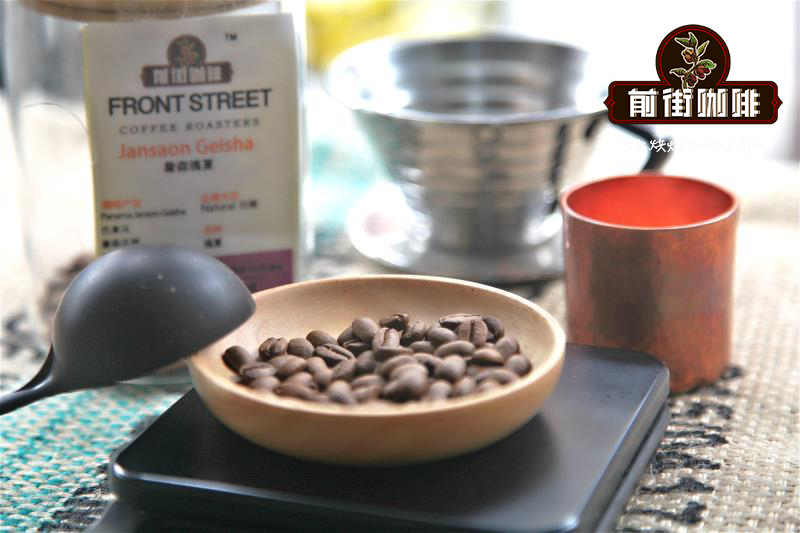What do you mean by the acidity of coffee beans? what are the sour coffee beans?

Professional coffee knowledge exchange more coffee bean information please follow the coffee workshop (Wechat official account cafe_style)
In the raw bean state, coffee contains chlorogenic acid, citric acid, malic acid, after baking will form quinic acid, caffeic acid, acetic acid and other low molecular organic acids, these acids are the representatives of sour substances in coffee. Of course, there are polymer organic acids such as fatty acids, or inorganic acids such as phosphoric acid. The strength of coffee acid depends on the total amount of these organic acids and the acidity-base value that accompanies them.
Sour and bitter taste, in the raw beans can hardly feel the sour feeling, I do not mind you take the raw beans to extract to drink, be careful not to take too expensive grinder, hurt the grinding plate I will not lose.
After roasting, the sucrose in raw beans begins to decompose, which can increase the content of organic acid. in the state of light or moderate roasting, the performance of acid will continue to increase to the highest, but after the peak period, continue heating and baking will only make the sour taste volatile and decompose, the content of organic acid will decrease, and the sour taste will become lower. This is why deep-roasted coffee beans are less likely to feel sour.
Although caffeic acid and chlorogenic acid account for a lot of content in coffee, the taste feeling of these two things is almost bitter and astringent, and the organic acid in coffee is almost the same as the sour substances in all kinds of fruits. This is why we can often drink the flavor of fruit in coffee.
Malic acid is actually like a ripe apple, soft and introverted with a hint of sweetness. Citric acid is actually a compound named after the same kind of lemon originating in our country-Gouyuan, and has a sour taste of citrus. In fact, acetic acid is a double-edged sword, high concentration of acetic acid makes people feel more intense and special irritating taste, but low concentration of acetic acid can provide better texture to the acid of coffee, together with other acids, low concentration of acetic acid can bring sour taste with alcohol thickness.
Phosphoric acid is the most perceptible acid, the performance is very bright and lively, we often drink acid similar to berries in Kenya is actually the sense of brightness brought by phosphoric acid. Quinic acid is a substance originally found in cinchona trees. High levels of quinic acid can also be found in kiwi fruits. Quinic acid in coffee feels like kiwi fruit and passion fruit.
Coffee and fruit, both have different organic acids at the same time, through different combinations, different types and contents of balance, to form the unique sour taste of coffee or fruit, this is the source of "sour" in coffee.
A cup of light to medium-roasted coffee will contain obvious fruit acid, citric acid, malic acid, will degrade with coffee roasting, the lighter the roast, the stronger the acid, the deeper the roast, the less acid. Shallow to medium-deep roasted coffee from hot to cold, the more you drink, the more sour, it is because guainic acid will stand out as the temperature drops. A cup of deep-roasted to Italian French-roasted coffee becomes more and more bitter from hot to cold, because guainic acid increases gradually when it is roasted shallow to medium to deep, while deep roasting that reaches a second burst is a decrease. (second explosion dense point = deep baking)
Some coffee is suitable for deep roasting, such as Manning, light-roasted wet-planed mantenin, which has a strong herbal flavor, so this one is suitable for deep baking, showing spicy, caramel, maltose and light herbal aromas. Sun Manning, no herbal flavor, spice, and nut, chocolate taste is great, and the fruit acid is very sour, suitable for medium to deep baking. For example, African beans suitable for shallow baking, Yega, this shallow to shallow baking can well reflect the characteristics of Yega. I really don't like Starbucks to use Yega for deep baking. I feel like a monster. What a good floral aroma, fruity and sour flavor is gone, but it is also because coffee beans need long-distance transportation, in order to preserve the taste, it can only be so, understandably.
END
Important Notice :
前街咖啡 FrontStreet Coffee has moved to new addredd:
FrontStreet Coffee Address: 315,Donghua East Road,GuangZhou
Tel:020 38364473
- Prev

Coffee beans are ranked in terms of acidity | what are the coffee with high acidity?
Professional coffee knowledge exchange more coffee bean information Please pay attention to the coffee workshop (Wechat official account cafe_style) coffee acid is good, good acid is clear, natural, sweet fruit acid; bad acid is sharp, irritating acid. For example, a cup of fresh lemonade tastes natural and sweet, but not many people like a cup of strong aged vinegar. This proves
- Next

How to choose coffee beans in a coffee shop? what coffee beans should be used for espresso?
Professional coffee knowledge exchange more coffee bean information Please pay attention to the coffee workshop (Wechat official account cafe_style) for coffee shops, the biggest choice is the choice of coffee machine and coffee beans. This article will not talk about the choice of coffee machine, let's talk about the choice of coffee beans. What is the basis for coffee shops to choose coffee beans? This subtitle is actually a little too big, also
Related
- Beginners will see the "Coffee pull flower" guide!
- What is the difference between ice blog purified milk and ordinary milk coffee?
- Why is the Philippines the largest producer of crops in Liberia?
- For coffee extraction, should the fine powder be retained?
- How does extracted espresso fill pressed powder? How much strength does it take to press the powder?
- How to make jasmine cold extract coffee? Is the jasmine + latte good?
- Will this little toy really make the coffee taste better? How does Lily Drip affect coffee extraction?
- Will the action of slapping the filter cup also affect coffee extraction?
- What's the difference between powder-to-water ratio and powder-to-liquid ratio?
- What is the Ethiopian local species? What does it have to do with Heirloom native species?

